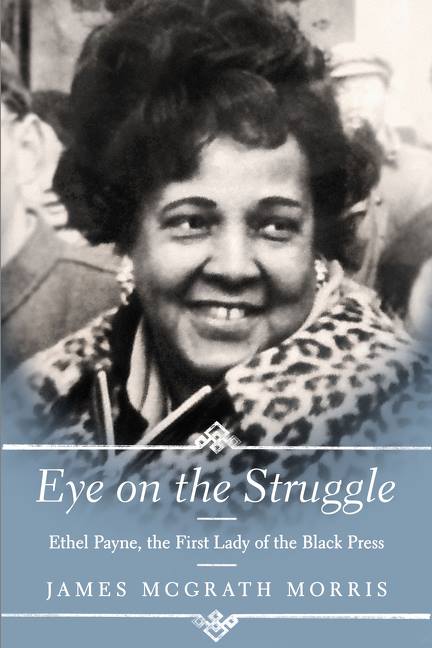Afternoon Shift: The life and legacy of Ethel Payne, the “First Lady of the Black Press”
By WBEZ

Afternoon Shift: The life and legacy of Ethel Payne, the “First Lady of the Black Press”
By WBEZ
Ethel Payne and her legacy in the black press
Washington Post obituary writers remembering Ethel Payne wrote that if she had not been black, she certainly would have been one of the most recognized journalists in American society. That’s why we picked this book for our Afternoon Shift book club this month. Our book club is about Chicago, whether that’s the city, its writers or its people. And Ethel Payne was a Chicagoan. The granddaughter of slaves, she grew up in Englewood in the early 1900s. She was a graduate of Lindbloom, she was the Chicago Defender’s one-woman Washington bureau for decades, and she was the third black reporter to get a White House press pass.
Her life story is painstakingly detailed in a biography that came out last month. It’s called “Eye on the Struggle: Ethel Payne, the First Lady of the Black Press.” The author James McGrath Morris joins us in studio.
Guest: James McGrath Morris is the author of ‘Eye on the Struggle: Ethel Payne, the First Lady of the Black Press.’
Sheriff Tom Dart wants to stop “unjust” incarcerations
Cook County Sheriff Tom Dart says his jails are filled with people who don’t belong there. He’s tired of blue-ribbon committees and studies on the topic. He wants change, and he wants Springfield’s support. Meanwhile, federal immigration officers would like Dart and other local law enforcement officials to detain people of interest. Immigration and Customs Enforcement officials say the lack of cooperation is putting their officers in dangerous situations as they track down foreign-born criminals. WBEZ’s Katie O’Brien joins us in studio to talk about all of this.
Guest: Katie O’Brien is a WBEZ reporter.
Tech Shift: Project Loon could spread Internet access to the most remote places on Earth
At Google, the big ideas that push the boundaries of what’s possible are known as “moonshots.” Think the self-driving car. Or Google Glass. They’re developed at Google X, the company’s secretive laboratory for technological breakthroughs. Project Loon is one of the things Google X is working on. The idea: Spreading the Internet to the most remote places on Earth with high-altitude balloons that can stay aloft for as long as six months. Ben Popper is an editor at tech website The Verge who got an inside look at Project Loon. He discusses more details on the project.
Guest: Ben Popper is an editor at tech website The Verge.
Emanuel counts surprising projects as neighborhood development
Critics say Chicago Mayor Rahm Emanuel focuses too much on what’s good for downtown and not enough on neighborhoods. But the mayor vigorously denies that. One of his regular talking points is the $4 billion spent on neighborhoods through a program called Neighborhoods Now. WBEZ looked at the numbers and found some big projects you might be surprised to see under the umbrella of neighborhood development. WBEZ’s Shannon Heffernan reports.
Guest: Shannon Heffernan is a WBEZ reporter.
Mayor Emanuel offers ideas on how to develop neighborhoods
WBEZ’s Shannon Heffernan reported on how some of Mayor Rahm Emanuel’s neighborhood investment funds have gone to McCormick Place and an upscale private club in the West Loop. Today, the mayor offered some new ideas for neighborhood investment. Greg Hinz, political columnist and reporter at Crain’s Chicago Business, joins us to discuss some of those ideas and what they could mean for Chicago neighborhoods.
Guest: Greg Hinz is a political columnist and reporter at Crain’s Chicago Business.
Illinois Supreme Court hears arguments on state pension reform
The state of Illinois is on the hook for more than $100 billion when it comes to pensions for state workers. It’s the most underfunded state pension system in the nation. Today, the Illinois Supreme Court heard arguments in Springfield from lawyers for state workers and the state itself. The debate centered on a law that would raise the retirement age for some workers, cut back cost-of-living increases and implement other measures to address the state’s skyrocketing pension costs. WBEZ’s Tony Arnold joins us for a play-by-play and what it all means.
Guest: Tony Arnold is a WBEZ reporter.